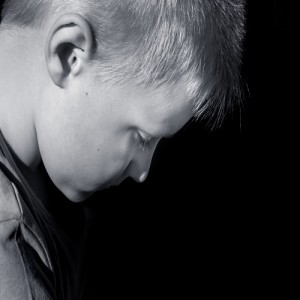Parents in Prison – The Importance of Maintaining Family Contact
According to the Prison Reform Trust, there are approximately 200,000 children across the UK with a parent in prison. That’s more than double the number of children affected by divorce in the same year. However, many of these children are denied access to their parents in prison – and here’s why.
Grayling’s IEP Changes
During his time as Minister for Justice, Chris Grayling introduced changes the IEP – the Incentives and Earned Privileges scheme. The scheme features three levels: basic, standard and enhanced. Grayling wanted to make it harder for prisoners to reach the enhanced status, and wanted to make sure that all new inmates remained at ‘basic’ for two weeks upon admission, irrespective of what their behaviour was like.
Depending on the inmate’s status, they would be granted certain privileges. Significantly, family access was categorised as a ‘privilege’ – with enhanced status prisoners enjoying more access to their children than standard or basic level inmates.
The Implication for Children
Children’s charity Barnardos found that, since the introduction of Grayling’s changes, inmates categorised as ‘basic’ status had increased by 52%. In practical terms, this means they have as much as 8 hours less visitation time with their children than other inmates.
Unfortunately, this also coincides with other changes that have had an adverse impact on visitation rights. Lack of funding means that understaffed prisons are unable to offer the resources required to hold regular visitation sessions. Additionally, many inmates are often moved from prison to prison – making it increasingly difficult for family to visit them.
This has an impact on the inmate, who is unable to maintain regular contact with his or her children. But it also has terrible implications for the children themselves. Countless studies in the past have highlighted the importance of family relationships in formative years – and the current prison system is denying children from having access to these key parental figures in their lives.
Revealing the Extent of the Problem
The Howard League for Penal Reform highlighted even more difficulties that prisoners face when trying to see their children. They regularly receive calls on their advice line about ‘closed visits’ – situations in prison where the child is unable to have any physical contact with their parent. One can only imagine how difficult it would be to explain to a young child that they cannot cuddle their mother or father!
Additionally, some prisons use ticketing systems – which means family members have to wait outside for long periods of time to see their relatives inside. Again, attempting to wait when you have young children is an almost impossible task – as any parent knows.
Family Support = Reduced Rates of Reoffending?
Barnardos recommend a variety of ways in which the visitation experience could be improved for children – but also highlight the fact that regular contact with the family could reduce the likelihood of the parent reoffending upon release. As The Guardian so correctly says: ‘Strong family relationships are one of the key building blocks in moving away from crime. Prisons should do everything they can to nurture those relationships.’
Increasing Family Contact
In addition to increasing visitation hours and enabling inmates to stay better connected with loved ones, we believe prisoners should be able to make more phone calls to their family. However, at present, making calls can be tricky. If they can’t get through on a landline, inmates are forced to phone mobile phones instead – and the costs can be prohibitive.
We offer a cheaper solution for prisoners – helping them to stay in contact with their children at a fraction of the cost. To find out more about our tariffs, simply visit our site today.
References:
http://www.prisonreformtrust.org.uk/Portals/0/Documents/Prison%20the%20facts%20May%202014.pdf
http://www.theguardian.com/commentisfree/2015/dec/04/fathers-prison-seeing-children-jails-family-iep
http://www.barnardos.org.uk/working-with-children-with-a-parent-in-prison.pdf

